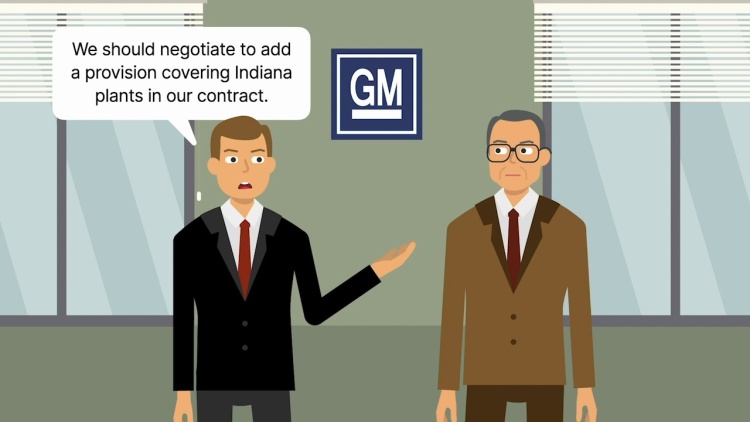NLRB v. General Motors Corp.
United States Supreme Court
373 U.S. 734 (1963)
- Written by Rose VanHofwegen, JD
Facts
The United Automobile, Aerospace and Agricultural Implement Workers of America (UAW) represented employees of General Motors Corp. (GM) (defendant). The 1958 UAW labor agreement required new hires to join the UAW within a specified amount of time and continue paying union dues for its duration, known as “union-shop” and “maintenance-of-membership” provisions. Those provisions did not apply in states like Indiana with right-to-work laws that prohibited conditioning employment on union membership. But when an Indiana appellate court upheld an agency-shop arrangement, UAW proposed a similar provision to GM. The proposal required employees to pay amounts equal to union initiation fees and dues as a condition of employment, but not actual union membership. GM refused to bargain over the proposal, claiming it would constitute an unfair labor practice under the National Labor Relations Act (NLRA). The union filed charges with the National Labor Relations Board (NLRB) for refusal to bargain over a mandatory bargaining subject. The NLRB found the agency-shop provision allowable and ordered GM to bargain. But the appellate court set aside the order, reasoning that the proposal fell outside the NLRA proviso excepting union shops from the general prohibition against discrimination based on union membership. The Supreme Court granted review.
Rule of Law
Issue
Holding and Reasoning (White, J.)
What to do next…
Here's why 905,000 law students have relied on our case briefs:
- Written by law professors and practitioners, not other law students. 47,100 briefs, keyed to 995 casebooks. Top-notch customer support.
- The right amount of information, includes the facts, issues, rule of law, holding and reasoning, and any concurrences and dissents.
- Access in your classes, works on your mobile and tablet. Massive library of related video lessons and high quality multiple-choice questions.
- Easy to use, uniform format for every case brief. Written in plain English, not in legalese. Our briefs summarize and simplify; they don’t just repeat the court’s language.





